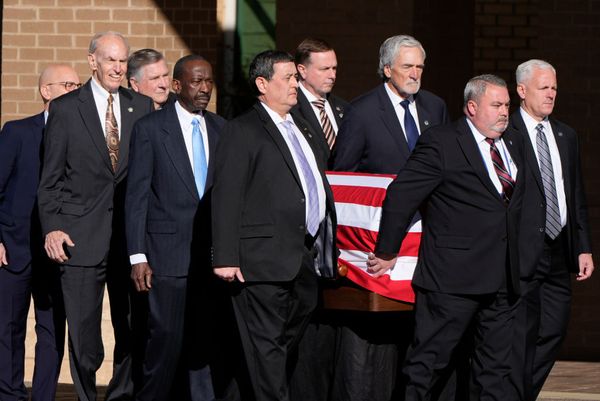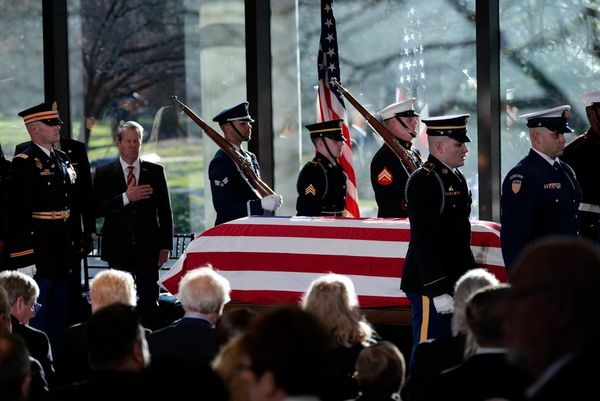
Earlier this year, I was summoned for jury duty. It was an inconvenient time at work, but I felt an undeniable tingle of excitement. Finally, I had the opportunity to see how our justice system works and perform my “civic duty” as a citizen. What I’m left with months later is not excitement, but sorrow for the Indigenous teenager our justice system has failed. I think of her nearly every day.
Legally, I’m not allowed to disclose details of jury deliberations or elements of the trial that weren’t open to the public. This leaves me with plenty I’m unable to say, but even the few snippets I can share are indicative of a system that works against victims of sexual assault.
Some of the issues became clear before the trial even started. Once members of the jury were chosen, we were given an overview of the indictments then sent to a tiny room with a giant oval table, where we sat drinking coffee while waiting for proceedings to begin. Verbalising a thought that’s probably common in these cases, it was then that one juror postulated that “perhaps she is doing this because she wants compensation?”
Luckily, this was one small aspect of law I retained from university 20 years ago, and I pointed out that criminal law is different to civil law; there’s nothing for her to gain if the accused is found guilty. “Except justice,” one juror chimed in. We all nodded. He added that it’s the police who decide when a matter is taken to court, not the alleged victim, and that she may not have been the one to report the matter to police. Why the jury isn’t informed of these things is beyond me.
While I can’t share anything further from our conversations, since beyond that point were the jury deliberations, I can say that I was lucky to be stuck with 12 people who took their role seriously and were determined to do their best. I’m not sure I can say the same for the prosecutor.
He mumbled his way through the case and read out witness statements quite quickly, as though to get it over with. This was in stark contrast with the barrister for the accused who had clearly done his research and took the time to ask well-articulated, thought-provoking questions. It’s important to note that the accused doesn’t get questioned at all, unless his own team decides to have him as a witness.
A piece of evidence that may have been useful was not provided because the prosecutor discovered, right in the middle of proceedings, that it had been printed in a font too small to be read. It was not reprinted. Later I discovered that jurors are not allowed to request pieces of evidence, even if it could be easily obtained — like detailed phone records — but instead have to go off whatever the prosecution decides to provide. It makes sense, we aren’t investigators. But what happens when the prosecution doesn’t do its job?
Finally, the way the indictments are worded can make it difficult to provide a guilty verdict if the alleged victim is believable, but is “unreliable” due to being unsure around timeframes — and perhaps even contradicts themselves. Particularly when there’s a lack of evidence. An indictment doesn’t say, “The accused did touch the child sexually”. It will say, “On this specific date, or between these two specific dates, the accused did touch the child sexually”.
For a teenager living day-to-day and worrying more about spending time with friends than paying attention to a calendar, is it reasonable to expect her to know exactly when the alleged abuse happened? There are also cultural factors to consider: according to my Aboriginal relatives who have lived in regional communities similar to her hometown, statements like “the other week” can mean six months ago.
When it was time to give the verdict, I wished more than anything that I could provide an explanation: “Not guilty because the system doesn’t work.”
When we left the courthouse the accused was standing near the exit, smiling. It was as though he expected we might gather around and congratulate him. “What’s he doing here,” I whispered to a juror. She sighed and shook her head. “He’s a free man, he can go wherever he wants”.
All 12 of us walked past without acknowledging his existence.
If you or someone you know is affected by sexual assault or violence, call 1800RESPECT on 1800 737 732 or visit 1800RESPECT.org.au. In an emergency, call 000.
For counselling, advice and support for men in NSW, Victoria and Tasmania who have anger, relationship or parenting issues, call the Men’s Referral Service on 1300 766 491. Men in WA can contact the Men’s Domestic Violence Helpline on 1800 000 599.







